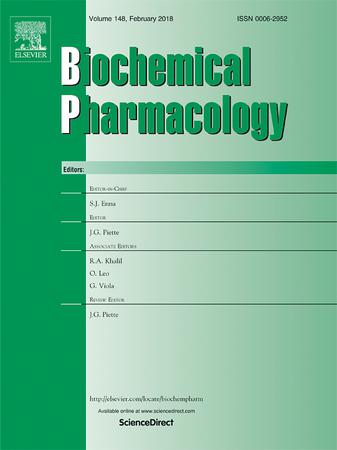Recombinant AAV gene transfer: Emerging applications in immune modulation and cancer therapy
IF 5.6
2区 医学
Q1 PHARMACOLOGY & PHARMACY
引用次数: 0
Abstract
Advancements have been achieved in gene transfer using recombinant adeno-associated virus (rAAV). rAAVs with distinct tissue tropisms are used to deliver target genes safely and accurately to specific host tissue. Although primarily used for treating monogenic disease, rAAV vectors also have potential in the field of immune modulation. Gene delivery through rAAV vectors, particularly those encoding immune regulatory molecules, not only mitigates inflammation and corrects immune dysfunction but also suppresses tumor growth and enhances the efficacy of Chimeric Antigen Receptor T cell therapy via immune modulation, thereby exerting anti-cancer effects. rAAV-based immune therapies primarily focus on autoimmune diseases, including rheumatoid arthritis, autoimmune uveitis, multiple sclerosis and other genetic immune diseases but may also be used to treat hepatocellular carcinoma, glioma and ovarian cancer. The present review aims to outline the advantages and limitations of rAAV gene delivery vectors and their potential applications in immune therapy.

重组AAV基因转移:在免疫调节和癌症治疗中的新应用。
利用重组腺相关病毒(rAAV)进行基因转移已取得进展。具有不同组织趋向性的raav被用于安全准确地将靶基因递送到特定的宿主组织。虽然主要用于治疗单基因疾病,但rAAV载体在免疫调节领域也有潜力。通过rAAV载体,特别是编码免疫调节分子的载体传递基因,不仅可以减轻炎症,纠正免疫功能障碍,还可以通过免疫调节抑制肿瘤生长,提高嵌合抗原受体T细胞治疗的疗效,从而发挥抗癌作用。基于raav的免疫疗法主要集中于自身免疫性疾病,包括类风湿关节炎、自身免疫性葡萄膜炎、多发性硬化症和其他遗传免疫疾病,但也可用于治疗肝细胞癌、胶质瘤和卵巢癌。本文综述了rAAV基因载体的优点、局限性及其在免疫治疗中的应用前景。
本文章由计算机程序翻译,如有差异,请以英文原文为准。
求助全文
约1分钟内获得全文
求助全文
来源期刊

Biochemical pharmacology
医学-药学
CiteScore
10.30
自引率
1.70%
发文量
420
审稿时长
17 days
期刊介绍:
Biochemical Pharmacology publishes original research findings, Commentaries and review articles related to the elucidation of cellular and tissue function(s) at the biochemical and molecular levels, the modification of cellular phenotype(s) by genetic, transcriptional/translational or drug/compound-induced modifications, as well as the pharmacodynamics and pharmacokinetics of xenobiotics and drugs, the latter including both small molecules and biologics.
The journal''s target audience includes scientists engaged in the identification and study of the mechanisms of action of xenobiotics, biologics and drugs and in the drug discovery and development process.
All areas of cellular biology and cellular, tissue/organ and whole animal pharmacology fall within the scope of the journal. Drug classes covered include anti-infectives, anti-inflammatory agents, chemotherapeutics, cardiovascular, endocrinological, immunological, metabolic, neurological and psychiatric drugs, as well as research on drug metabolism and kinetics. While medicinal chemistry is a topic of complimentary interest, manuscripts in this area must contain sufficient biological data to characterize pharmacologically the compounds reported. Submissions describing work focused predominately on chemical synthesis and molecular modeling will not be considered for review.
While particular emphasis is placed on reporting the results of molecular and biochemical studies, research involving the use of tissue and animal models of human pathophysiology and toxicology is of interest to the extent that it helps define drug mechanisms of action, safety and efficacy.
 求助内容:
求助内容: 应助结果提醒方式:
应助结果提醒方式:


